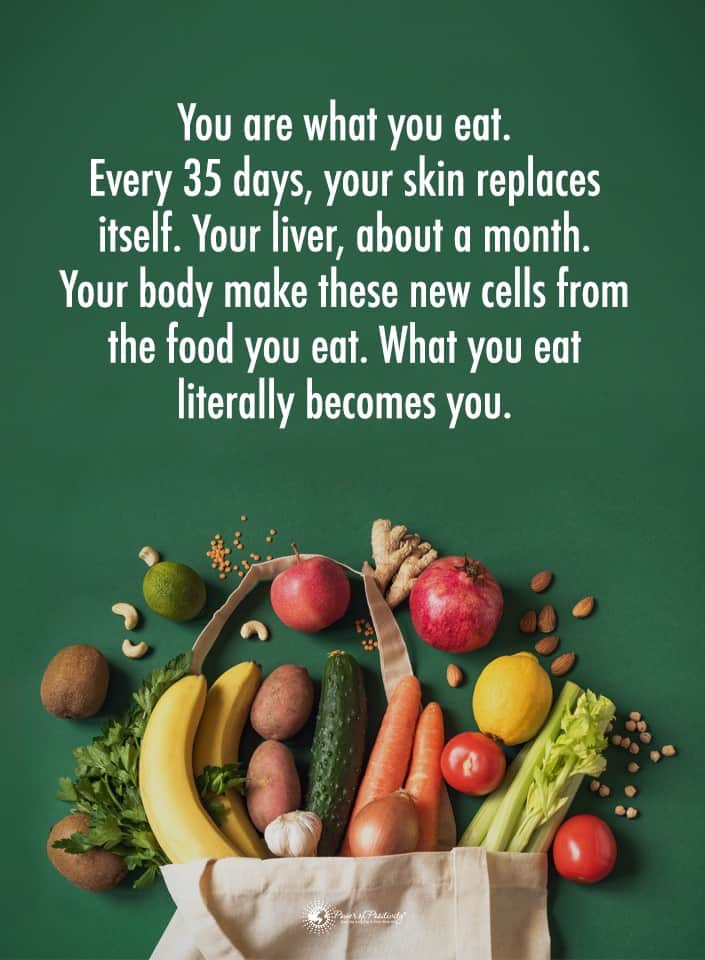Did you know that good digestive health is conducive to a state of good mental health?
The digestive system is a group of organs working together to convert food into energy and essential nutrients to feed the body. Most people think of the digestive system as our stomach or other innards, which is true in the abstract, but it’s a much more complex, important system than most people think. If someone is neglectful of digestive health, they could run into problems in digesting food and create situations that result in fewer nutrients absorbing by their body.
The foods that we eat and the lifestyle we live determines the health of our digestive system. As long as we follow some basic instructions, we can keep our digestive system running smoothly.
“The road to health is paved with good intestines!” – Sherry A. Rogers
Here are ten tips to improve and maintain our digestive health:
Try these ten things to improve your gut health.
1. Drink water
There is nothing better for our overall health than drinking aqua. Drinking plenty of water (7-8 12 ounce glasses a day) helps keep our mental and physical faculties in order. The digestive system requires water to stay efficient. Not getting enough water slows down these processes and makes waste more difficult to pass. Make sure to drink plenty of water and other fluids, especially after exercise. An easy way to make sure we’re getting enough water? When our urine is clear all day long.
2. Exercise for Better Digestive Health
Exercise is essential to digestive health in the same ways that it’s essential to our overall health: exercise increases blood flow and helps regulate weight. More specifically, this blood flow stimulates muscles in the gastrointestinal (GI) tract, prompting our organs to work more efficiently. This cycle causes food to work through our insides at a quicker rate and reduces the chance of constipation. As a rule of thumb, try to get 30 minutes of exercise daily. This activity can be taking the stairs, biking, swimming, walking, jogging, sports, etc. It’s okay to break that 30 minutes into smaller increments, as well.
3. Limit fatty foods
No surprise here: fatty foods are bad for the digestive system. More specifically, fatty foods slow the digestive process, which can cause problems such as constipation. Since it is vital to get some fat into our diet, we recommend choosing healthy fats such as Omega-3’s (found in olive oil, avocado, eggs, nuts, and lean meats such as chicken and turkey). Also, for meals that contain fat, couple it with high-fiber foods to ease the digestive process.
4. Eat more fiber
This one is probably obvious by now, but fiber intake is essential to digestion. If we think of our intestines as roads, fiber is the traffic cop that makes sure it doesn’t get congested, and everything goes smoothly. In addition, fiber is essential in slowing down digestion and slowing down glucose absorption, helping regulate our blood sugar levels. When we experience gassiness or difficulty in passing waste, likely, we’re not implementing enough fiber into our diets. There are plenty of fiber-rich foods out there, but here are some popular ones: pears, apples, bananas, oranges, raisins, almonds, peanuts, artichokes, broccoli, peas, black beans, and lentils.
5. Slow down when eating
As with most people, our digestive systems don’t like to be rushed. Some of the key signals that the body sends to the brain take some time, including when we’re full. It’s recommended that we chew each both them at least 20 times, which gives the stomach plenty of time in preparing to digest the nutrients that are being delivered; it also allows the body enough time to signal to the brain that we’re full. Another interesting note: try to avoid eating in from of the television. Studies show that when we’re distracted when eating, we act significantly more than when we’re at the dinner table.
6. Consume probiotics
Probiotics are natural, healthy bacteria that are found in our gut. These healthy bacteria are essential in helping to combat the negative effects of poor diets, stress, and antibiotics. Further, probiotics improve nutrient absorption, regulate healthy bacteria, and normalize our bowels. Some great sources of these bacterial helpers include probiotic supplements, low-fat yogurt, and kefir.
7. Cut down on alcohol
Our digestive system can be negatively impacted by too much alcohol consumption. Gallstones are solid masses that form in the gallbladder that can cause intense stomach and back pain, fever, and appetite loss, among other symptoms brought on by alcohol consumption. Alcohol can also cause metabolic syndrome – a group of symptoms that increase the risk of cardiovascular disease, stroke, and diabetes. Some other side effects of alcohol on the digestive system: heartburn, gastritis, intestinal cancer, inflammation of the pancreas, and liver disease.
8. Manage stress for Improved Digestive Health
According to Dr. Kenneth Koch at Wake Forest University Baptist Medical Center:
“Stress can affect every part of the digestion system…(stress) can cause your esophagus to go into spasms. It can increase the acid in your stomach, causing indigestion…the stomach can shut down and make you feel nauseous. Stress can cause your colon to react in a way that gives you diarrhea and constipation.”
Honestly, he said all that. So, add the digestive system to a long list of disrupted things by stress and then manage stress appropriately.
9. Eat small meals throughout the day
Eating smaller meals during the day instead of two or three large meals is healthy for our digestive system and metabolism. This method of eating prevents us from getting too hungry, overeating, and eating too fast. Consuming smaller meals also helps in combating abdominal pain, bloating, cramping and gas. In essence, eating smaller meals throughout the day doesn’t overburden our digestive systems, which is how many of our digestive problems start.
10. Eat mindfully
We’re so crunched for time that eating is often done on the run. Many times, we eat mindlessly by shoveling food into our mouths while glancing at the clock. Needless to say, this increases our stress levels and is counterproductive to digestive health. Instead, we should place food into the mouth and slowly chew while enjoying the texture and flavor of the food. Savor the food and be mindful of the process of eating – it’s much more enjoyable and healthy.















 Community
Community

